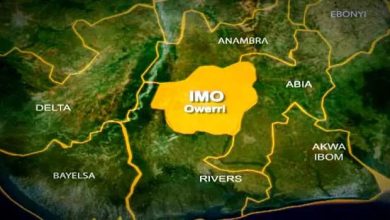Electricity Distributors Cry Out Over Bill Payment Resistance After Enugu Tariff Cut
Electricity companies fear more Nigerians may stop paying bills after Enugu lowered power tariff.
They warn this could affect service, cause confusion, and worsen the sector’s financial challenges.
Electricity distribution companies across Nigeria have raised concerns over growing consumer resistance to electricity bill payments, following a recent tariff reduction announced by the Enugu State Electricity Regulatory Commission (EERC). They fear the move could disrupt the already fragile power sector.
The EERC recently slashed the tariff for Band A customers in Enugu from N209 per kilowatt-hour to N160/kWh. Since then, Discos say customers in other states have started demanding similar reductions, with some refusing to pay their bills altogether.
In a statement issued on Thursday, the Chief Executive Officer of the Association of Nigerian Electricity Distributors, Sunday Oduntan, said, “Following the release of the new tariff order by the EERC, electricity companies operating in other states have come under pressure to reduce their rates. Some consumers have even declared they will stop paying until tariffs are lowered.”
While expressing support for more affordable electricity, the Discos stressed that current tariffs are based on cost-reflective models tied to broader economic realities. “We hope tariffs will reduce over time, but current prices reflect the cost of providing service. We are not trying to make life harder for consumers,” the statement added.
The Discos also criticized the EERC for acting without coordinating with the Nigerian Electricity Regulatory Commission (NERC) or other major stakeholders. They warned that such independent decisions could create confusion, distort the market, and damage sector stability.
They further pointed out that the Enugu tariff cut relies heavily on government subsidies. Without clear and timely funding, these subsidies could worsen the liquidity crisis in the power sector. According to Oduntan, unpaid electricity subsidy bills have already left power generation companies and gas suppliers with nearly N5 trillion in outstanding payments.
Referencing the Minister of Power, Bayo Adelabu, the group noted that any state reducing tariffs must be ready to bear the financial burden that comes with the decision. They stressed the importance of aligning federal and state policies and ensuring timely disbursement of subsidies to avoid financial strain.
Oduntan warned that unless proper coordination and funding mechanisms are established, public resistance to paying electricity bills fueled by local tariff adjustments could severely undermine investor confidence and disrupt national power supply efforts.
In response, the EERC defended its decision, clarifying that the tariff cut was based on a review of MainPower’s costs and was limited to Enugu State. The Commission stated it did not alter the cost of power generation from the national grid, nor did it affect services in other states.
Reuben Okoye, the EERC’s Commissioner for Electricity Market Operations, explained that the agency’s goal is to build a transparent and accountable electricity market within Enugu. “Our tariff decision allows MainPower to fully recover its costs and earn a fair return while ensuring electricity remains affordable for Enugu residents,” he said.
EERC reiterated that its actions are specific to Enugu and do not influence national electricity pricing structures, urging other stakeholders to recognize the localized nature of its decision.



